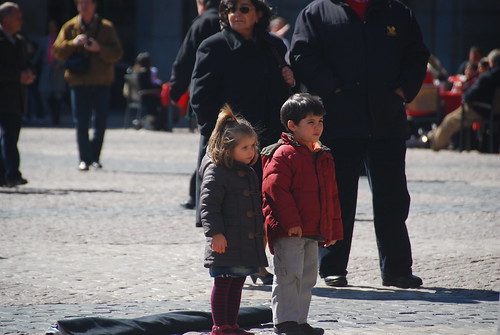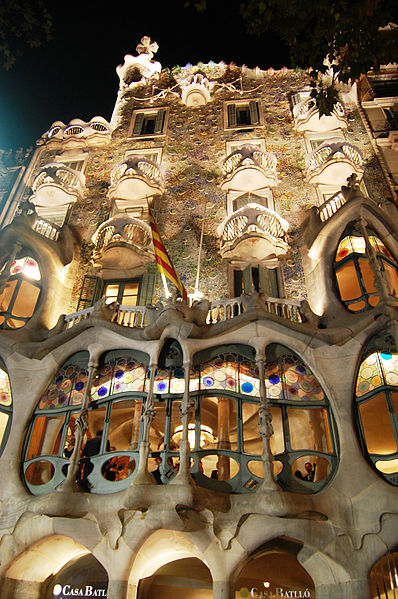Difference between revisions of "Adopting from Spain"
m (→SOURCE) |
|||
| (3 intermediate revisions by 2 users not shown) | |||
| Line 1: | Line 1: | ||
| − | {{#eimage:https://www.cia.gov/library/publications/the-world-factbook/graphics/flags/large/sp-lgflag.gif|410x579px|thumb|'''The official flag | + | {{#eimage:https://www.cia.gov/library/publications/the-world-factbook/graphics/flags/large/sp-lgflag.gif|410x579px|thumb|'''The official flag.'''<BR/>Source: cia.gov.}} |
| − | {{#eimage:https://www.cia.gov/library/publications/the-world-factbook/graphics/maps/sp-map.gif|410x579px|thumb|'''Map | + | {{#eimage:https://www.cia.gov/library/publications/the-world-factbook/graphics/maps/sp-map.gif|410x579px|thumb|'''Map'''<BR/>Source: cia.gov.}} |
| − | {{#eimage:https://www.cia.gov/library/publications/the-world-factbook/graphics/locator/eur/sp_large_locator.gif|410x579px|thumb|'''Map | + | {{#eimage:https://www.cia.gov/library/publications/the-world-factbook/graphics/locator/eur/sp_large_locator.gif|410x579px|thumb|'''Map'''<BR/>Source: cia.gov.}} |
| − | {{#eimage:http://upload.wikimedia.org/wikipedia/commons/thumb/1/18/View_of_Nativity_Fa%C3%A7ade_of_Basilica_and_Expiatory_Church_of_the_Holy_Family_%28Bas%C3%ADlica_i_Temple_Expiatori_de_la_Sagrada_Fam%C3%ADlia%29_%28_UNESCO_World_Heritage_Site%29._Barcelona%2C_Catalonia%2C_Spain.jpg/401px-thumbnail.jpg|410x579px|thumb|'''View of Nativity Façade of Basilica and Expiatory Church of the Holy Family (Basílica i Temple Expiatori de la Sagrada Família) (UNESCO World Heritage Site). Barcelona, Catalonia | + | {{#eimage:http://upload.wikimedia.org/wikipedia/commons/thumb/1/18/View_of_Nativity_Fa%C3%A7ade_of_Basilica_and_Expiatory_Church_of_the_Holy_Family_%28Bas%C3%ADlica_i_Temple_Expiatori_de_la_Sagrada_Fam%C3%ADlia%29_%28_UNESCO_World_Heritage_Site%29._Barcelona%2C_Catalonia%2C_Spain.jpg/401px-thumbnail.jpg|410x579px|thumb|'''View of Nativity Façade of Basilica and Expiatory Church of the Holy Family (Basílica i Temple Expiatori de la Sagrada Família) (UNESCO World Heritage Site). Barcelona, Catalonia'''<BR/>Source: Wikipedia.org.}} |
| − | {{#eimage:http://upload.wikimedia.org/wikipedia/commons/thumb/a/ae/Sanfermines_Vaquillas_Pamplona_08.jpg/800px-Sanfermines_Vaquillas_Pamplona_08.jpg|410x579px|thumb|''' The Running of the Bulls in Pamplona | + | {{#eimage:http://upload.wikimedia.org/wikipedia/commons/thumb/a/ae/Sanfermines_Vaquillas_Pamplona_08.jpg/800px-Sanfermines_Vaquillas_Pamplona_08.jpg|410x579px|thumb|''' The Running of the Bulls in Pamplona'''<BR/>Source: Wikipedia.org.}} |
| − | {{#eimage:https://farm5.staticflickr.com/4025/4436405185_12556f013b.jpg|410x579px|thumb|'''Children watching a street performer in Madrid | + | {{#eimage:https://farm5.staticflickr.com/4025/4436405185_12556f013b.jpg|410x579px|thumb|'''Children watching a street performer in Madrid'''<BR/>Source: flickr.com.}} |
| − | {{#eimage:http://upload.wikimedia.org/wikipedia/commons/thumb/a/af/Escorial-sur.jpg/800px-Escorial-sur.jpg|410x579px|thumb|'''El Escorial, UNESCO World Heritage Site | + | {{#eimage:http://upload.wikimedia.org/wikipedia/commons/thumb/a/af/Escorial-sur.jpg/800px-Escorial-sur.jpg|410x579px|thumb|'''El Escorial, UNESCO World Heritage Site'''<BR/>Source: Wikipedia.org.}} |
| − | {{#eimage:http://upload.wikimedia.org/wikipedia/commons/thumb/1/1d/Guggenheim_Museum%2C_Bilbao%2C_July_2010_%2806%29.JPG/800px-Guggenheim_Museum%2C_Bilbao%2C_July_2010_%2806%29.JPG|410x579px|thumb|''' Guggenheim Museum, Bilbao, Biscay | + | {{#eimage:http://upload.wikimedia.org/wikipedia/commons/thumb/1/1d/Guggenheim_Museum%2C_Bilbao%2C_July_2010_%2806%29.JPG/800px-Guggenheim_Museum%2C_Bilbao%2C_July_2010_%2806%29.JPG|410x579px|thumb|''' Guggenheim Museum, Bilbao, Biscay'''<BR/>Source: Wikipedia.org.}} |
| − | {{#eimage:https://farm6.staticflickr.com/5248/5379298950_f9f7b8833c.jpg|410x579px|thumb|'''Children in Barcelona | + | {{#eimage:https://farm6.staticflickr.com/5248/5379298950_f9f7b8833c.jpg|410x579px|thumb|'''Children in Barcelona'''<BR/>Source: flickr.com.}} |
{{#eimage:http://upload.wikimedia.org/wikipedia/commons/thumb/6/6b/CasaBatllo_0170.JPG/398px-CasaBatllo_0170.JPG|410x579px|thumb|'''Casa Batlló - Barcellona | {{#eimage:http://upload.wikimedia.org/wikipedia/commons/thumb/6/6b/CasaBatllo_0170.JPG/398px-CasaBatllo_0170.JPG|410x579px|thumb|'''Casa Batlló - Barcellona | ||
Antoni Gaudi.'''<BR/>Source: Wikipedia.org.}} | Antoni Gaudi.'''<BR/>Source: Wikipedia.org.}} | ||
| − | {{#eimage:https://farm2.staticflickr.com/1034/1263377652_5434d33a17.jpg|410x579px|thumb|'''Schoolgirls in Barcelona | + | {{#eimage:https://farm2.staticflickr.com/1034/1263377652_5434d33a17.jpg|410x579px|thumb|'''Schoolgirls in Barcelona'''<BR/>Source: flicker.com.}} |
| − | |||
| − | + | '''Notice: As of July 14, 2014, all individuals and agencies facilitating [[international]] adoptions must be in compliance with the Intercountry [[Universal Accreditation Act]].''' | |
| − | + | The information contained on this website is for educational purposes only and is not intended to be a substitute for professional legal advice. Always seek the advice of a licensed and qualified professional. While the content of this website is frequently updated, information changes rapidly and therefore, some information may be out of date, and/or contain inaccuracies, omissions or typographical errors. | |
| − | Spain | + | =About Spain= |
| + | [[Spain]]'s powerful world empire of the 16th and 17th centuries ultimately yielded command of the seas to England. Subsequent failure to embrace the mercantile and industrial revolutions caused the country to fall behind Britain, [[France]], and [[Germany]] in economic and political power. To learn more please read [[About Spain]]. | ||
| − | |||
| + | =Hague Convention Information= | ||
| + | |||
| + | [[Spain]] is party to the Hague Convention on Protection of Children and Co-operation in Respect of Intercountry [[Adoption]] (Hague [[Adoption]] Convention). Therefore all adoptions between [[Spain]] and the United States must meet the requirements of the Convention and U.S. law implementing the Convention. To learn more please read about [[Spain and the Hague Convention]]. | ||
| − | |||
=Who Can Adopt= | =Who Can Adopt= | ||
| − | Adoption between the United States and Spain is governed by the Hague Adoption Convention. Therefore to [[adopt]] from Spain, you must first be found eligible to [[adopt]] by the U.S. Government. The U.S. Government agency responsible for making this determination is the Department of Homeland Security, U.S. Citizenship and Immigration Services (USCIS). | + | [[Adoption]] between the United States and [[Spain]] is governed by the Hague [[Adoption]] Convention. Therefore to [[adopt]] from [[Spain]], you must first be found eligible to [[adopt]] by the U.S. Government. The U.S. Government agency responsible for making this determination is the Department of Homeland Security, U.S. Citizenship and Immigration Services (USCIS). To learn more please read about [[Who Can Adopt from Spain]]. |
| − | |||
| − | |||
| − | |||
| − | |||
| − | |||
| − | |||
| − | |||
| − | |||
| − | |||
| − | |||
| − | |||
| − | |||
| − | |||
| − | |||
| − | |||
| − | |||
| − | |||
| − | |||
| − | |||
| − | |||
| − | |||
| − | |||
=Who Can Be Adopted= | =Who Can Be Adopted= | ||
| − | Because Spain is party to the Hague Adoption Convention, children from Spain must meet the requirements of the Convention in order to be eligible for adoption. | + | Because [[Spain]] is party to the Hague [[Adoption]] Convention, children from [[Spain]] must meet the requirements of the Convention in order to be eligible for [[adoption]]. To learn more please read about [[Who Can Be Adopted from Spain]]. |
| − | |||
| − | |||
| − | |||
| − | |||
| − | |||
| − | |||
| − | |||
| − | |||
| − | |||
| − | |||
| − | |||
| − | |||
| − | |||
=How to Adopt= | =How to Adopt= | ||
| Line 86: | Line 52: | ||
==Adoption Authority== | ==Adoption Authority== | ||
| − | '''Spain's Adoption Authority''' | + | '''[[Spain]]'s [[Adoption]] Authority''' |
| − | Each of the 17 Autonomous Communities in Spain is the Central Authority for its territory. The national-level Central Authority for transmission of communications, the Dirección General del Menor y Familia in Madrid, is the office responsible for transmitting requests from prospective [[Adoptive Parents|adoptive parents]] to the Central Authority in the appropriate Autonomous Community. | + | Each of the 17 Autonomous Communities in [[Spain]] is the Central Authority for its territory. The national-level Central Authority for transmission of communications, the Dirección General del Menor y Familia in Madrid, is the office responsible for transmitting requests from prospective [[Adoptive Parents|adoptive parents]] to the Central Authority in the appropriate Autonomous Community. |
==The Process== | ==The Process== | ||
| − | Because Spain is party to the Hague Adoption Convention, adopting from Spain must follow a specific process designed to meet the Convention’s requirements. A brief summary of the Convention adoption process is given below. You must complete these steps in the following order so that your adoption meets all necessary legal requirements. | + | Because [[Spain]] is party to the Hague [[Adoption]] Convention, adopting from [[Spain]] must follow a specific process designed to meet the Convention’s requirements. A brief summary of the Convention [[adoption]] process is given below. You must complete these steps in the following order so that your [[adoption]] meets all necessary legal requirements. |
| − | '''NOTE:''' If you filed your [[I-600A|I-600a]] with Spain before April 1, 2008, the Hague Adoption Convention may not apply to your adoption. Your adoption could continue to be processed in accordance with the immigration regulations for non-Convention adoptions Read about Transition Cases for more information. | + | '''NOTE:''' If you filed your [[I-600A|I-600a]] with [[Spain]] before April 1, 2008, the Hague [[Adoption]] Convention may not apply to your [[adoption]]. Your [[adoption]] could continue to be processed in accordance with the immigration regulations for non-Convention adoptions Read about Transition Cases for more information. |
| Line 103: | Line 69: | ||
# Be Matched with a Child | # Be Matched with a Child | ||
# Apply for the Child to be Found Eligible for Immigration to the United States | # Apply for the Child to be Found Eligible for Immigration to the United States | ||
| − | # [[Adopt]] the Child in Spain | + | # [[Adopt]] the Child in [[Spain]] |
# Bring your Child Home | # Bring your Child Home | ||
| + | To learn more about this process please read about [[How to Adopt from Spain]]. | ||
| − | |||
| − | |||
| − | |||
| − | |||
| − | |||
| − | |||
| − | |||
| − | |||
| − | |||
| − | |||
| − | |||
| − | |||
| − | |||
| − | |||
| − | |||
| − | |||
| − | |||
| − | |||
| − | |||
| − | |||
| − | |||
| − | |||
| − | |||
| − | |||
| − | |||
| − | |||
| − | |||
| − | |||
| − | |||
| − | |||
| − | |||
| − | |||
| − | |||
| − | |||
| − | |||
| − | |||
| − | |||
| − | |||
| − | |||
| − | |||
| − | |||
| − | |||
| − | |||
| − | |||
| − | |||
| − | |||
| − | |||
| − | |||
| − | |||
| − | |||
| − | |||
| − | |||
| − | |||
| − | |||
| − | |||
| − | |||
| − | |||
| − | |||
| − | |||
| − | |||
| − | |||
| − | |||
| − | |||
| − | |||
| − | |||
| − | |||
| − | |||
| − | |||
| − | |||
| − | |||
| − | |||
| − | |||
| − | |||
| − | |||
| − | |||
| − | |||
| − | |||
| − | |||
| − | |||
| − | |||
| − | |||
| − | |||
| − | |||
| − | |||
=Traveling Abroad= | =Traveling Abroad= | ||
| Line 196: | Line 79: | ||
'''Applying for Your U.S. Passport''' | '''Applying for Your U.S. Passport''' | ||
| − | A valid U.S. passport is required to enter and leave Spain. Only the U.S. Department of State has the authority to grant, issue, or verify U.S. passports. Getting or renewing a passport is easy. | + | A valid U.S. passport is required to enter and leave [[Spain]]. Only the U.S. Department of State has the authority to grant, issue, or verify U.S. passports. Getting or renewing a passport is easy. To learn more please read about [[Traveling Abroad in Spain]]. |
| − | + | ||
| − | + | ||
| − | + | ||
| − | + | ||
| − | + | ||
| − | + | ||
| − | + | ||
| − | + | ||
| − | + | ||
| − | + | ||
| − | + | ||
| − | + | ||
| − | + | ||
| − | |||
=After Adoption= | =After Adoption= | ||
| Line 230: | Line 99: | ||
| − | + | =Contact Information= | |
| − | '''U.S. Embassy in Spain''' | + | '''U.S. Embassy in [[Spain]]''' |
American Embassy Madrid | American Embassy Madrid | ||
| Line 244: | Line 113: | ||
| − | '''Spain's Adoption Authority''' | + | '''[[Spain]]'s [[Adoption]] Authority''' |
| − | Spain is divided in to 17 Autonomous Communities, each of which has its own governmental entity in charge of adoptions. A list of these offices may be found at: [http://madrid.usembassy.gov/cons/acsentities.html this website]. | + | [[Spain]] is divided in to 17 Autonomous Communities, each of which has its own governmental entity in charge of adoptions. A list of these offices may be found at: [http://madrid.usembassy.gov/cons/acsentities.html this website]. |
| − | '''Embassy of Spain''' | + | '''Embassy of [[Spain]]''' |
Address: 2375 [[Pennsylvania]] Ave. N.W. | Address: 2375 [[Pennsylvania]] Ave. N.W. | ||
[[Washington]], D.C. 20037 | [[Washington]], D.C. 20037 | ||
| − | Phone: 202-728-2334; (from Spain): (1 202) 452 01 00; (1 202) 728 23 40 | + | Phone: 202-728-2334; (from [[Spain]]): (1 202) 452 01 00; (1 202) 728 23 40 |
| − | Fax (from Spain): (1 202) 833 56 70 | + | Fax (from [[Spain]]): (1 202) 833 56 70 |
E-mail: emb.washington@maec.es | E-mail: emb.washington@maec.es | ||
Internet: [http://www.maec.es/en/Home/Paginas/HomeEn.aspx Embassy of Spain] | Internet: [http://www.maec.es/en/Home/Paginas/HomeEn.aspx Embassy of Spain] | ||
| − | Spain also has consulates in: Albuquerque, Anchorage, Atlanta, Boise, Boston, Chicago, Cincinnati, Corpus Christi, Dallas, Detroit, El Paso, Honolulu, Houston, [[Kansas]] City (MO), Los Angeles, Miami, Mobile, New Orleans, [[New York]], Newark, Pensacola, Philadelphia, San Antonio, San Diego, San Francisco, San Juan (PR), St. Louis, and Seattle. | + | [[Spain]] also has consulates in: Albuquerque, Anchorage, Atlanta, Boise, Boston, Chicago, Cincinnati, Corpus Christi, Dallas, Detroit, El Paso, Honolulu, Houston, [[Kansas]] City (MO), Los Angeles, Miami, Mobile, New Orleans, [[New York]], Newark, Pensacola, Philadelphia, San Antonio, San Diego, San Francisco, San Juan (PR), St. Louis, and Seattle. |
| Line 279: | Line 148: | ||
==SOURCE== | ==SOURCE== | ||
| − | '''Intercountry [[Adoption]], Bureau of Consular Affairs. U.S. Department of State Country Information''' | + | '''Intercountry [[Adoption]], Bureau of Consular Affairs. U.S. Department of State Country Information''' adoption.state.gov/country_information/country_specific_info.php?country-select=spain |
[[Category: International Adoption]] | [[Category: International Adoption]] | ||
Latest revision as of 02:40, 21 February 2018
Notice: As of July 14, 2014, all individuals and agencies facilitating international adoptions must be in compliance with the Intercountry Universal Accreditation Act.
The information contained on this website is for educational purposes only and is not intended to be a substitute for professional legal advice. Always seek the advice of a licensed and qualified professional. While the content of this website is frequently updated, information changes rapidly and therefore, some information may be out of date, and/or contain inaccuracies, omissions or typographical errors.
Contents
About Spain
Spain's powerful world empire of the 16th and 17th centuries ultimately yielded command of the seas to England. Subsequent failure to embrace the mercantile and industrial revolutions caused the country to fall behind Britain, France, and Germany in economic and political power. To learn more please read About Spain.
Hague Convention Information
Spain is party to the Hague Convention on Protection of Children and Co-operation in Respect of Intercountry Adoption (Hague Adoption Convention). Therefore all adoptions between Spain and the United States must meet the requirements of the Convention and U.S. law implementing the Convention. To learn more please read about Spain and the Hague Convention.
Who Can Adopt
Adoption between the United States and Spain is governed by the Hague Adoption Convention. Therefore to adopt from Spain, you must first be found eligible to adopt by the U.S. Government. The U.S. Government agency responsible for making this determination is the Department of Homeland Security, U.S. Citizenship and Immigration Services (USCIS). To learn more please read about Who Can Adopt from Spain.
Who Can Be Adopted
Because Spain is party to the Hague Adoption Convention, children from Spain must meet the requirements of the Convention in order to be eligible for adoption. To learn more please read about Who Can Be Adopted from Spain.
How to Adopt
Adoption Authority
Each of the 17 Autonomous Communities in Spain is the Central Authority for its territory. The national-level Central Authority for transmission of communications, the Dirección General del Menor y Familia in Madrid, is the office responsible for transmitting requests from prospective adoptive parents to the Central Authority in the appropriate Autonomous Community.
The Process
Because Spain is party to the Hague Adoption Convention, adopting from Spain must follow a specific process designed to meet the Convention’s requirements. A brief summary of the Convention adoption process is given below. You must complete these steps in the following order so that your adoption meets all necessary legal requirements.
NOTE: If you filed your I-600a with Spain before April 1, 2008, the Hague Adoption Convention may not apply to your adoption. Your adoption could continue to be processed in accordance with the immigration regulations for non-Convention adoptions Read about Transition Cases for more information.
- Choose an Accredited Adoption Service Provider
- Apply to be Found Eligible to Adopt
- Be Matched with a Child
- Apply for the Child to be Found Eligible for Immigration to the United States
- Adopt the Child in Spain
- Bring your Child Home
To learn more about this process please read about How to Adopt from Spain.
Traveling Abroad
Applying for Your U.S. Passport
A valid U.S. passport is required to enter and leave Spain. Only the U.S. Department of State has the authority to grant, issue, or verify U.S. passports. Getting or renewing a passport is easy. To learn more please read about Traveling Abroad in Spain.
After Adoption
What resources are available to assist families after the adoption?
Many adoptive parents find it important to find support after the adoption. Take advantage of all the resources available to your family -- whether it's another adoptive family, a support group, an advocacy organization, or your religious or community services.
Here are some good places to start your support group search:
Child Welfare Information Gateway
North American Council on Adoptable Children
Adoption Services Support Group for Adopting Persons
Contact Information
U.S. Embassy in Spain
American Embassy Madrid American Citizen Services C./ Serrano, 75 Madrid Tel: 011 34 91 587 2200 Fax: 011 34 91 587 2243 Email: askacs@state.gov Internet: U.S. Embassy Spain
Spain is divided in to 17 Autonomous Communities, each of which has its own governmental entity in charge of adoptions. A list of these offices may be found at: this website.
Embassy of Spain
Address: 2375 Pennsylvania Ave. N.W. Washington, D.C. 20037 Phone: 202-728-2334; (from Spain): (1 202) 452 01 00; (1 202) 728 23 40 Fax (from Spain): (1 202) 833 56 70 E-mail: emb.washington@maec.es Internet: Embassy of Spain
Spain also has consulates in: Albuquerque, Anchorage, Atlanta, Boise, Boston, Chicago, Cincinnati, Corpus Christi, Dallas, Detroit, El Paso, Honolulu, Houston, Kansas City (MO), Los Angeles, Miami, Mobile, New Orleans, New York, Newark, Pensacola, Philadelphia, San Antonio, San Diego, San Francisco, San Juan (PR), St. Louis, and Seattle.
Office of Children's Issues
U.S. Department of State CA/OCS/CI SA-17, 9th Floor Washington, DC 20522-1709 Tel: 1-888-407-4747 E-mail: AskCI@state.gov Internet: U.S. Department of State
U.S. Citizenship and Immigration Services (USCIS)
For questions about immigration procedures, call the National Customer Service Center (NCSC) 1-800-375-5283 (TTY 1-800-767-1833)
SOURCE
Intercountry Adoption, Bureau of Consular Affairs. U.S. Department of State Country Information adoption.state.gov/country_information/country_specific_info.php?country-select=spain










